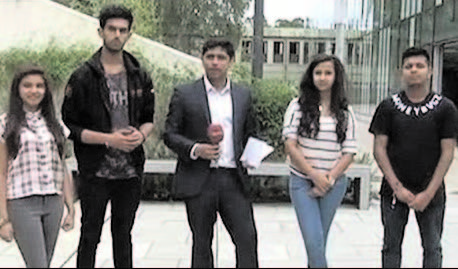
SEHWAN SHARIF, PAKISTAN (TIP): Yielding to the hypnotic beat of drums and the intoxicating scent of incense, the woman danced herself into a state of trance, laughing and shaking uncontrollably alongside hundreds of others at Pakistan’s most revered Sufi shrine. Swathed in red, the Sufi colour of passion, she shouted invocations to the shrine’s patron saint in an ecstatic ritual repeated daily in the dusty town of Sehwan Sharif on the banks of the river Indus. With its hypnotic rituals, ancient mysticism and a touch of intoxicated madness, Sufism is a non-violent form of Islam which has been practised in Pakistan for centuries – a powerful antidote to extremism in places such as the province of Sindh. It is scenes like this, where men and women dance together in a fervent celebration of their faith, that make Sufis an increasingly obvious target in the conservative Muslim country where sectarian violence is on the rise.
At a crossroads of historic trade routes, religions and cultures, Sindh has always been a poor but religiously tolerant place, shielded by its embrace of Sufism from Islamist militancy sweeping other parts of Pakistan. But this year peace came to an end with a string of attacks across the province, including against Sufi places of worship, as militants seek new safe havens and new ways of destabilising the country. “They are trying to kill us,” said Syed Sarwar Ali Shah Bukhari, whose father, a Sufi cleric, was killed in a bomb attack on the family’s ancestral shrine in February. Bukhari, 36, is now the oldest living descendant of a prominent Sufi “saint” whose tomb his family has tended for generations in a tradition handed down from father to son. “It was never like this before,” Bukhari, wearing a black turban and silver embroidered slippers, said nervously outside the Dargah Ghulam Shah Gazi shrine, its vast dome shining bright above the bleak mud-brick homes of his native Maari village. “Suddenly everyone is hostile towards us. People are afraid,” added Bukhari, who took over as the shrine’s resident saint and custodian after the death of his father.
Irredeemable heretics
The influx of Taliban-inspired gangs into Sindh is a disturbing development in a country where Prime Minister Nawaz Sharif‘s government is already struggling to contain a Taliban insurgency and escalating religious violence. “In Sindh, militancy was not common until now. It was known for its tolerance,” said Abdul Khalique Shaikh, a senior police officer who investigated this year’s Sufi attacks. “You can hardly find any Sindh-based religious extremists here.” Insurgents see Sufis as irredeemable heretics who deserve to die. Long entrenched in their tribal safe havens on Pakistan’s border with Afghanistan, militants are seeping quietly into vulnerable, less protected areas, establishing cells in unlikely new places such as rural Sindh. Sindh is home to Pakistan’s violent city of Karachi, long infiltrated by the Taliban. But until now, its rural interior has been of little interest to insurgents.





Be the first to comment